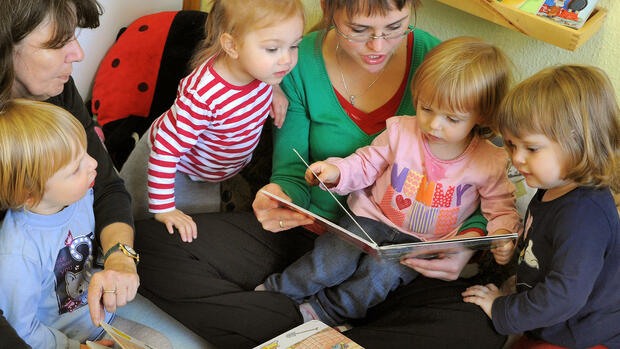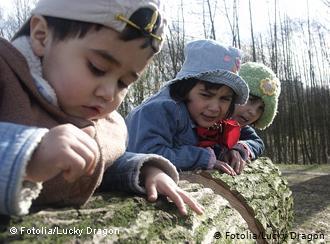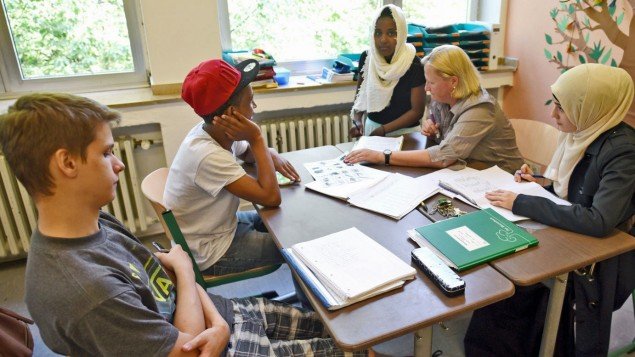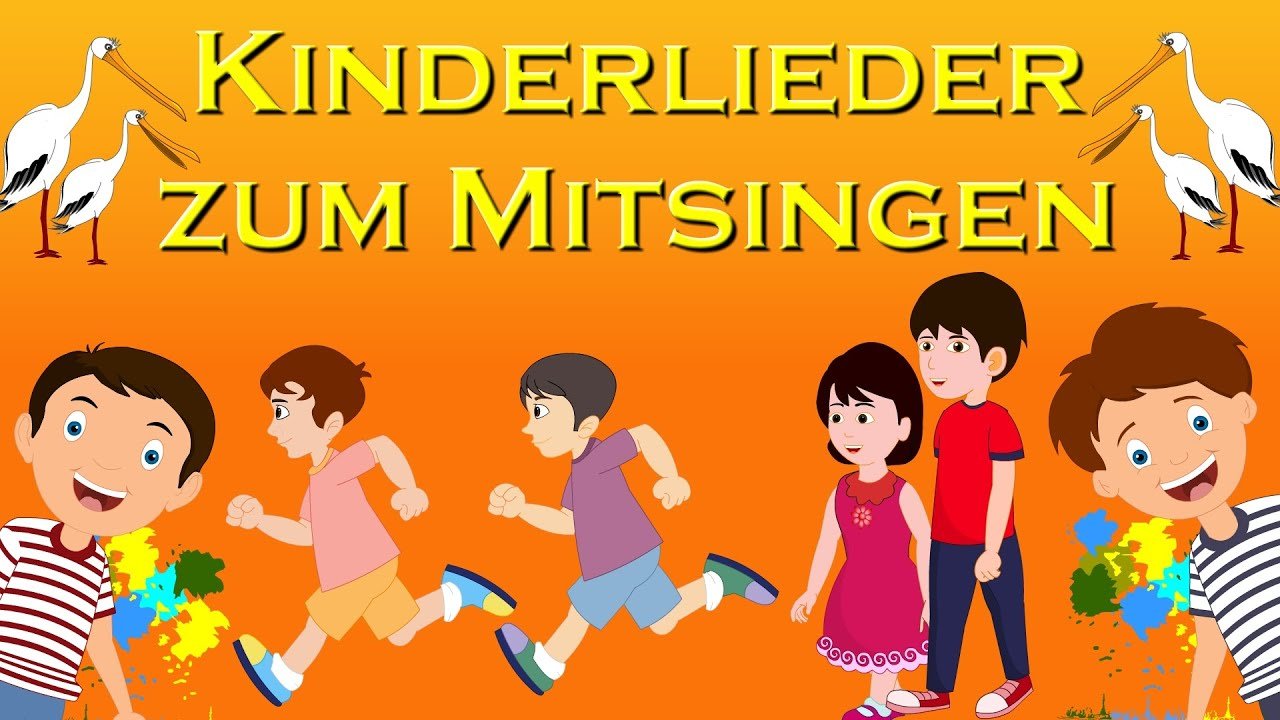Language test German children don’t speak German
In German daycare centers, everyone Children on checked their language skills. In Berlin every tenth child without a migration background does not speak German.
- Share article by:
- Share article by:

at "QuaSta" it is also checked whether children can follow read stories.
In Marzahn-Hellersdorf, every sixth German child needs tuition in German before going to school. This is checked with "QuaSta", a language test for 90 percent of Berlin’s children in daycare. Boys and girls are to be encouraged in the daycare so that they have an easier time at school.
The result of this year’s language test sounds alarming: among German children, the number has risen to a record of around 9 percent. Overall, however, the proportion of children drops to 15.8 percent. There is also a decline in migrants: around 31 percent of children need language support before going to school.
The language tests have been available nationwide since 2006. In Berlin, the Senate Department for Education tests German language skills of the daycare center children with two processes: "QuaSta" and "Deutsch Plus". Participation is mandatory for all children. This should make targeted language support possible even before school starts. But the tests are rarely reliable. The Mercator Institute published a study on this in November. The experts identified 32 quality characteristics of a language test, for example whether the children have to name colors or have to repeat sentences. No German test fulfills all the characteristics.
North Rhine-Westphalia abolished “Delfin 4” in response to the study. The reason: The Mercator Institute assumes that tens of thousands of children are misdiagnosed. From now on, language support should not start in the daycare. Instead of a test, the child’s language skills should also be discussed with the parents. Language support in NRW starts with two or three years.
The two Berlin methods also did not perform well in the test. "QuaSta" only fulfills 11 out of 32 quality features and thus comes in fourth to last place. In Berlin, educators keep a language learning diary for each child, in which the language development is documented. In the "QuaSta" questionnaire, they then enter whether the children can blow through a straw or repeat patterns in the sand, learn new words or look at picture books.
The questionnaire can be downloaded from the Internet. In addition, the teachers receive a manual that gives instructions for documentation. The qualification of the "QuaSta testers" is only rated as sufficient in the study, since the teacher had to be very well trained in language diagnosis in order to be able to make an objective judgment. A system of points determines which children need special language support. The experts also complain in Berlin that multilingualism is neglected. Despite the high proportion of migrants, such as in Marzahn-Hellersdorf, for example, the language biography is ignored in "QuaSta".
RELATED ITEMS
-

To learn German in kindergarten, politics – society, dw
Almost all federal states take German tests for children under the age of six. But the funding programs are of little use. They learn in everyday kindergarten life…
-

German for refugee children – is language the only criterion? (Archive)
By Claudia van Laak and Kemal Hür Language is the key to integration, it is said again and again. But there is often a lack of implementation. German for…
-

German kindergartens abroad are often better than here – expat news
The children of German workers abroad are apparently better looked after in German-speaking kindergartens in other European countries than in this country….
-

Download German children’s songs
I’m going with my lantern feat. Good evening Good Night. The Cuckoo and the donkey. Sing children’s songs with me. This website uses its own cookies…
